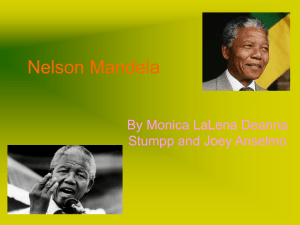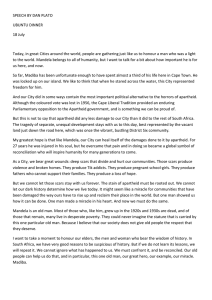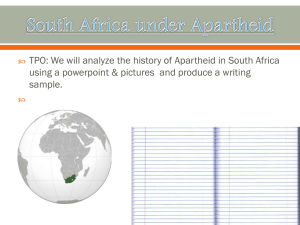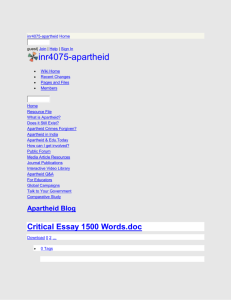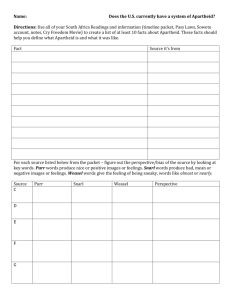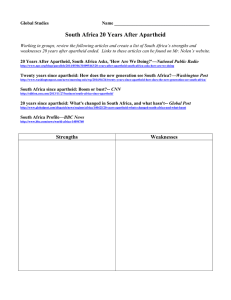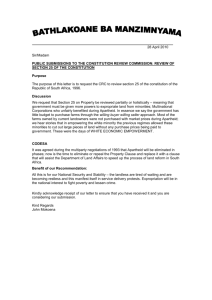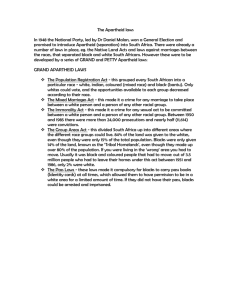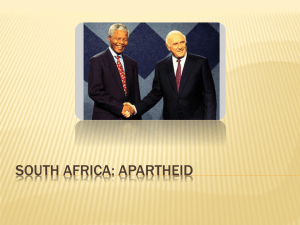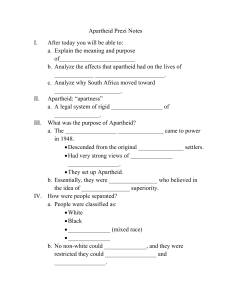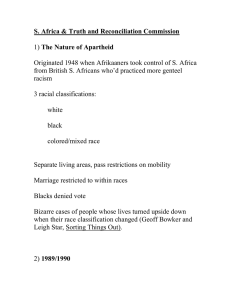Unit Map: Struggles for Liberation
advertisement
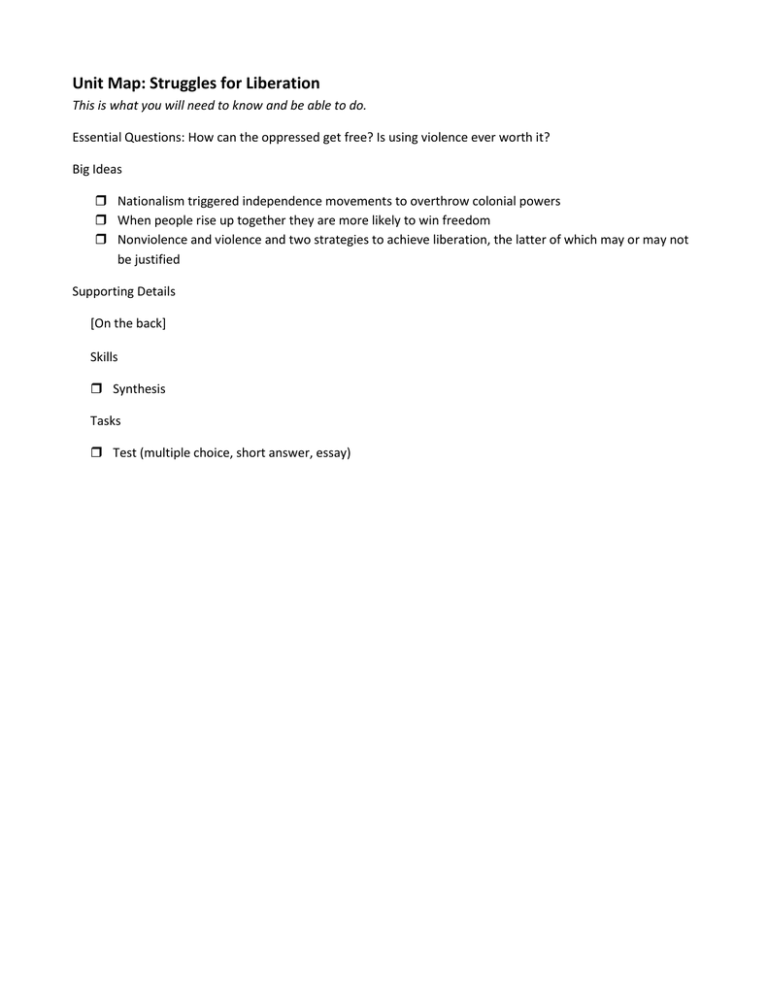
Unit Map: Struggles for Liberation This is what you will need to know and be able to do. Essential Questions: How can the oppressed get free? Is using violence ever worth it? Big Ideas Nationalism triggered independence movements to overthrow colonial powers When people rise up together they are more likely to win freedom Nonviolence and violence and two strategies to achieve liberation, the latter of which may or may not be justified Supporting Details [On the back] Skills Synthesis Tasks Test (multiple choice, short answer, essay) Supporting Details South Africa History of South Africa pre Euro colonization; who the first inhabitants were History of Dutch colonization of Sour Africa (Cape Colony) Great Trek, African wars (Mfecane), Battle of Blood River South African War of 1899-1902; influence of British on South Africa; Union of South Africa; Republic of South Africa Mineral revolution Evolution of apartheid—how it started, grew, changed over time, and ended Important dates: year apartheid became legal, year apartheid was abolished; arrival of Dutch and British Apartheid laws: pass laws, public safety act, group areas act, population registration act, criminal law amendment act, mixed marriages act, immorality acts Opposition to apartheid—ANC, PAC, SAIC, Congress Youth League, Black Consciousness, Defiance Campaign, Freedom Charter, Spear of the Nation, Poqo, Nelson Mandela, Congress of the People, Treason Trial, Robert Sobukwe, Steve Biko, Soweto Protest, Sharpeville Protest, Archbishop Desmond Tutu Mandela's Rivonia Trial speech explaining reasons for using violence "Racial" categorizations; breakdown of percentages: land to ethnic group, etc. Truth and Reconciliation Commission Cry Freedom India Cursory knowledge of India's history prior to 19th century Religions of India Caste system; know each caste and origin of system History of British in India: arrival, acquisition of power, treatment of Indians, etc. Names and Terms: Indian National Congress, Nehru, Jinnah, Gandhi, homespun, Muslim League, mahatma, satyagraha, nonviolent noncooperation, civil disobedience Events: Sepoy Mutiny, pass burning, massacre at Amritsar, Salt March, Indian independence, partitioning of India and Pakistan, Sri Lanka Important Date(s): year of Indian and Pakistani Independence Quotes by and about Gandhi
